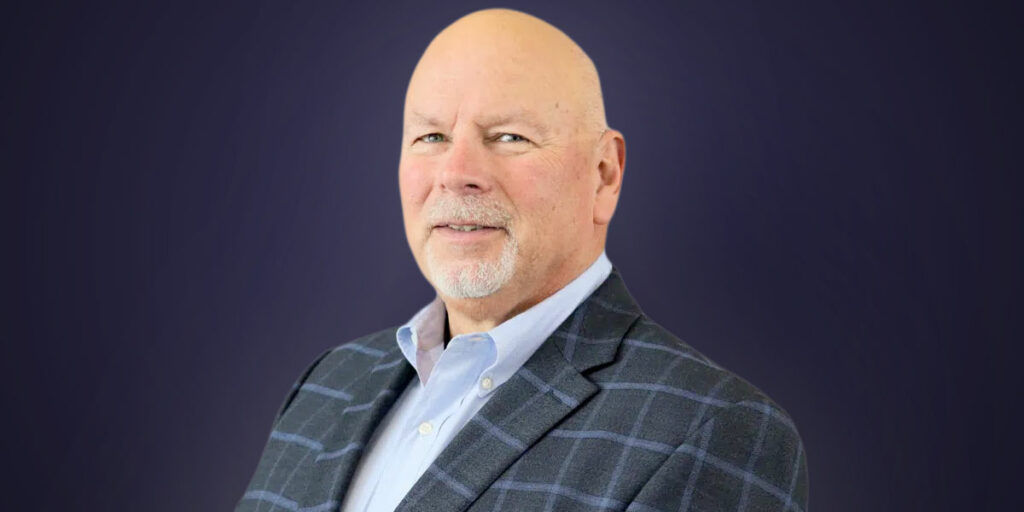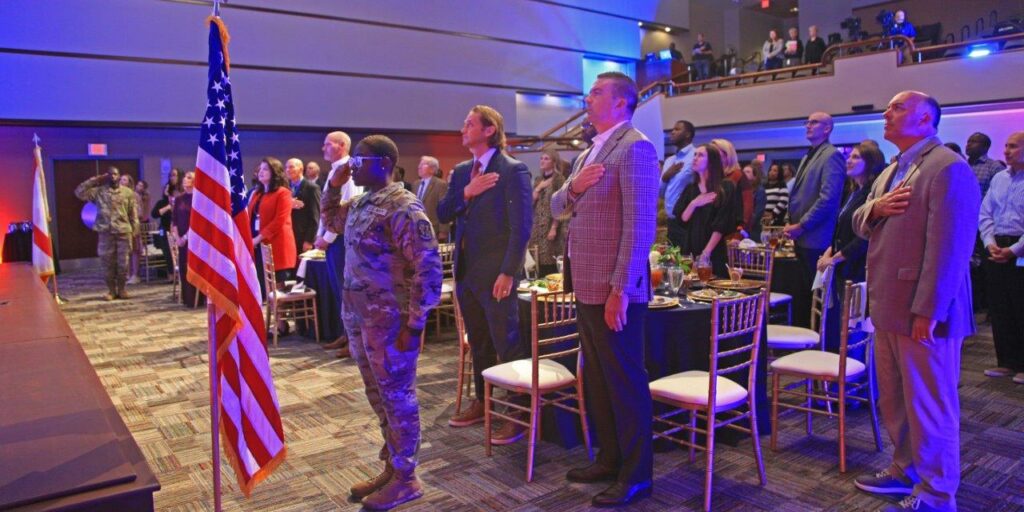As a young boy living within a stone’s throw of Cape Canaveral in South Florida, Forest Harper Jr. reached for the stars.
Although he never realized his childhood dream of rocketing through space as an astronaut, Harper broke through another “stratosphere” when he became the first and only African American vice president at pharmaceutical manufacturing giant Pfizer. Now, through his leadership at INROADS, he is helping today’s youths find their own place in the corporate world.
“After I had been vice president for a while, I woke up one morning and looked in the mirror and said, ‘There’s nothing I can do about being the first African American in this role, but there’s something I can do about being the only African American,’” Harper said. “What I wanted to do was give untapped and underrepresented youths opportunities to come into corporate America.”
Harper took a two-year leave from Pfizer to work as a leader at INROADS, the nation’s largest nonprofit source of corporate internships and leadership development for minority youths. After only two months at the organization, Harper learned that a co-worker suggested him as the organization’s next CEO.
It was nine years ago when the then 55-year-old left the corporate world for good to take the reins as CEO and president of INROADS. Since then, Harper has helped thousands of minority high school and college students prepare for jobs at major corporations, including Alabama Power and Southern Company.
“To me, INROADS is not a job. It’s literally a ministry,” Harper said. “It’s a ministry because you are a servant to the needs of the mission, no matter how big or how small it may be. It’s about how do I get to that one more kid. If I can get that kid into the program, there’s no doubt in my mind that I can get him or her into the pipeline and on the pathway. We want to give young people boot camp training, help them develop leadership skills and mentor them until they get to where they want to go.”
INROADS carves a path for future leaders from Alabama NewsCenter on Vimeo.
Harper said his vision for INROADS is twofold.
Along with increasing awareness about the program, Harper wants to wipe out what he calls America’s greatest affliction: the “IDK (I didn’t know) disease.”
Since its founding 50 years ago, INROADS has placed high school and college students in more than 154,000 paid internships. Additionally, about 30,000 INROADS alumni have professional and managerial jobs at more than 1,000 companies. But there’s still work to do, Harper said.
“What keeps us up at night is the IDK disease,” he said. “Students tell us they didn’t know that companies like Alabama Power offer so many careers. We envision expanding our program to middle school students so they will already know about STEM (science, technology, engineering and math) careers and the major companies in their backyard. Going into the pipeline earlier will help build a more inclusive 21st century workforce and knock that IDK out the window.”
Harper said INROADS has already made tremendous progress in creating an inclusive workforce.
As an example, research conducted by Careertrackers shows that nearly 50 years after the Fair Housing Act was passed to boost black homeownership rates in the U.S., the rates have fallen from 42% in 1970 to 41% in 1917. In contrast, 76% of INROADS alumni were found to own at least one property, providing a platform for generational wealth creation, Harper said.
“This shows that if you get kids early in the pipeline, put them on the path that we’ve designed and give them the leadership skills they need, you can completely close the wealth gap that has traditionally separated the races,” he said.
It’s no surprise that Harper has a passion for helping these underserved youths. While growing up in Fort Pierce, Florida, he lived in public housing. Harper’s single mom held down multiple jobs to support the family, while he often made a few extra dollars by picking tomatoes and oranges in the nearby fields.
Despite the hardships, Harper was determined and in 1972 won an athletic scholarship to Morgan State University in Baltimore, where he earned his bachelor’s degree in social work. After graduation, he served six years in the U.S. Army before his family’s continuing financial struggles back home in Fort Pierce prompted him to take a job as a sales representative at Pfizer.
For 28 years, Harper worked his way up through the ranks at Pfizer, ending his stint there as the vice president of Capability Development in Worldwide Public Affairs and Policy.
“My family always encouraged me that I could get out of the projects and do anything I wanted to do,” Harper said. “But when I left, I always planned to pay it forward by coming back one day to help the community. The opportunity to lead INROADS was that chance.”
Alabama Power and INROADS have a long relationship, Harper said. In the past decade alone, the company has hired more than 100 INROADS summer interns.
In addition, one of the company’s top leaders – Jonathan Porter, senior vice president of Customer Operations – got his start thanks to INROADS. Porter was an INROADS intern in the Birmingham Division for four summers beginning in 1991.
“My INROADS experience allowed me to build relationships at Alabama Power while I was in college,” Porter said. “These relationships, coupled with increasing responsibility, allowed me the opportunity to grow during this process. I later worked for INROADS as a manager of Recruitment and Student Services, which provided an inroad to come back to Southern Company as the lead diversity recruiter, and then served as president of the Southeastern Regional Board of INROADS. So, from an intern to an alumni to an employee to a board member, I have been involved in all aspects of INROADS and believe in its mission and objectives.”
INROADS turns dreams into reality from Alabama NewsCenter on Vimeo.
Another INROADS alumni, Alabama Power Southern Division Power Delivery Support Engineer LaShundra Pettway, said the organization “nurtured” her professionally and paved the way for her career at Alabama Power.
“INROADS prepared me for a world that I was not yet familiar with, and gave me a trial run of what it would be like in a professional setting like Alabama Power,” said Pettway, who worked as an INROADS summer intern in Alabama Power Prattville Engineering in 2011 and 2012. “I’m 100% sure it kept me from making a lot of mistakes that most interns, co-op students and first-time college graduates make when coming into the workforce. I would not have been ready professionally without the INROADS experience.”
Harper said INROADS could not prepare these youths to become tomorrow’s leaders without companies like Alabama Power.
“One of the key attributes to the successful impact of the INROADS program must be done with a commitment and collaboration from corporate America,” Harper said. “For close to 30 years, Alabama Power has been a role model for hundreds of students and leaders. We are grateful for the partnership with Alabama Power to help build the 21st century workforce.”
Harper said ultimately, INROADS strives to show young people that “someone cares about them and their future.”
“We have to be really patient with them, understand their passion and not try to force a round peg into a square hole,” Harper said. “They are really talented. They just need to know that someone cares. All Alabama Power needs to do is keep the light bulb constantly on for these young people and say, ‘We welcome all.’”
(Courtesy of Alabama NewsCenter)













